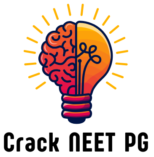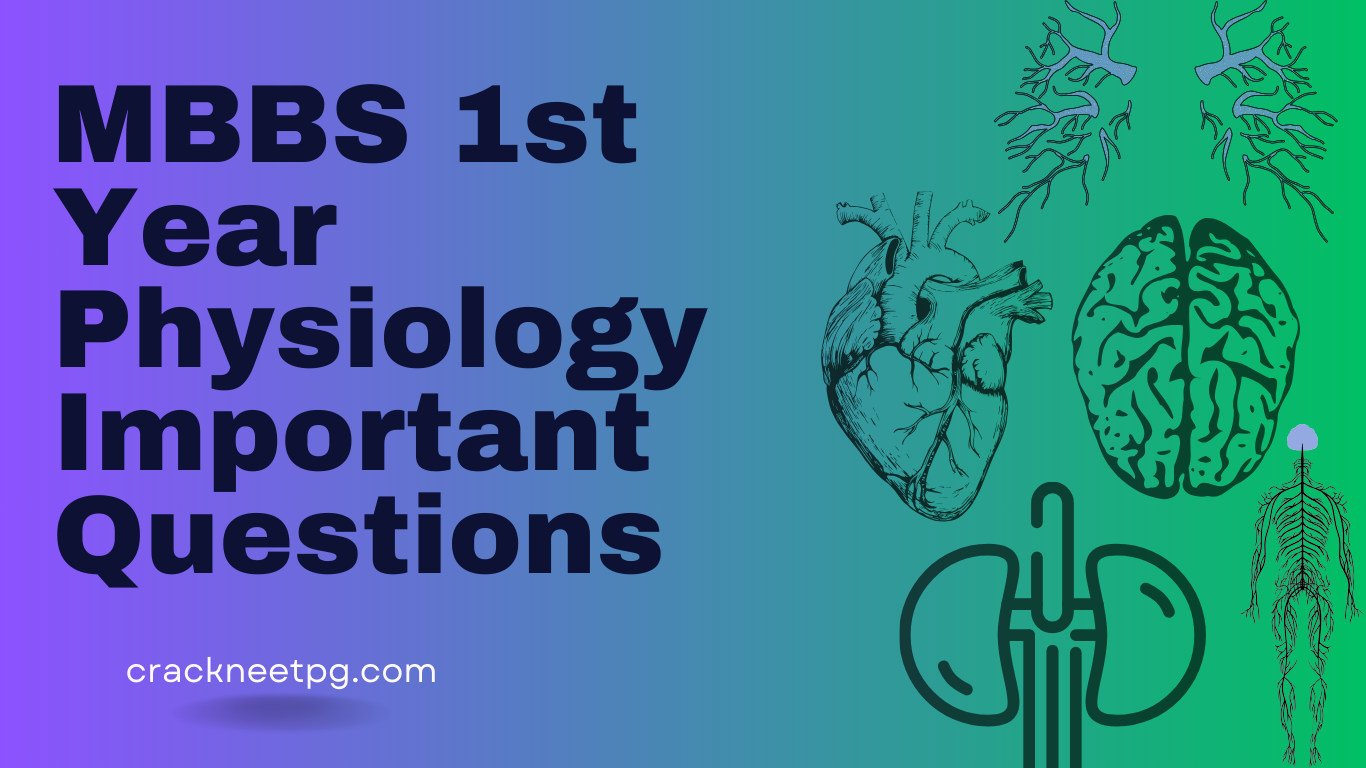Physiology is a crucial subject in the MBBS first-year curriculum. It provides foundational knowledge about the human body’s functions, enabling medical students to understand how different systems work in tandem. To perform well in exams, it’s important to focus on key questions that are frequently asked. Below is a detailed guide to important physiology questions for MBBS 1st-year students, categorized by topics.
1. General Physiology
- What is homeostasis? Explain its significance. – Discuss the concept of maintaining a stable internal environment despite external fluctuations, focusing on feedback mechanisms.
- Explain transport mechanisms across cell membranes. – Cover topics such as passive transport, active transport, osmosis, and diffusion.
- Describe the functions of cell organelles. – Study the mitochondria, nucleus, endoplasmic reticulum, and their respective roles in cell function.
2. Blood and Body Fluids
- Functions of plasma proteins. – Focus on albumin, globulins, and fibrinogen, their role in maintaining osmotic pressure, immunity, and blood clotting.
- Explain erythropoiesis and its influencing factors. – Understand the process of red blood cell formation and factors like erythropoietin and hypoxia.
- Describe the blood clotting mechanism. – Study the intrinsic and extrinsic pathways of clot formation, platelets, and clotting factors.
- What are blood groups? Explain the ABO and Rh blood grouping systems. – Understand the importance of blood types in transfusion and Rh incompatibility.
3. Cardiovascular Physiology
- Explain the cardiac cycle in detail. – Cover systole and diastole, changes in atrial and ventricular pressure, and volume throughout the cycle.
- What is cardiac output? Discuss the factors regulating it. – Focus on heart rate, stroke volume, and factors influencing them like venous return and sympathetic stimulation.
- Explain blood pressure regulation mechanisms. – Discuss neural (baroreceptors), hormonal (RAAS), and local factors (NO, endothelin).
- Describe the normal ECG and its clinical significance. – Study the P wave, QRS complex, T wave, and what they represent in cardiac activity.
4. Respiratory Physiology
- Describe the mechanics of respiration. – Focus on how the diaphragm and intercostal muscles facilitate breathing, and lung compliance.
- What is the oxygen dissociation curve? What factors shift it? – Study how factors like pH, temperature, and CO2 affect oxygen binding to hemoglobin.
- Explain neural regulation of respiration. – Cover the roles of the medullary and pontine centers in controlling breathing rate and depth.
5. Renal Physiology
- Structure of nephron and urine formation. – Study filtration, reabsorption, secretion, and the role of the nephron.
- What is GFR? What factors influence GFR? – Cover how renal blood flow, afferent/efferent arterioles, and blood pressure affect glomerular filtration rate.
- Explain the countercurrent mechanism in the kidneys. – Study the role of the loop of Henle in concentrating urine.
6. Gastrointestinal Physiology
- Mechanism of gastric secretion. – Focus on the role of parietal cells, hydrochloric acid secretion, and regulation by gastrin and histamine.
- Phases of gastric secretion. – Study the cephalic, gastric, and intestinal phases of secretion regulation.
- Explain the functions of the liver. – Cover metabolism, detoxification, bile production, and storage functions of the liver.
7. Endocrine Physiology
- Describe the actions of insulin and glucagon. – Understand how these hormones regulate glucose metabolism and blood sugar levels.
- Functions of adrenal cortex hormones. – Study the roles of cortisol, aldosterone, and androgens in stress, metabolism, and salt balance.
- Feedback regulation of thyroid hormone secretion. – Cover the hypothalamic-pituitary-thyroid axis and TSH regulation.
8. Nervous System
- Explain the reflex arc with examples. – Study the components of a simple reflex arc like the knee-jerk reflex.
- Autonomic nervous system (ANS) and its functions. – Discuss the sympathetic and parasympathetic systems, their neurotransmitters, and organ-specific effects.
- Functions of the hypothalamus. – Understand the role of the hypothalamus in temperature regulation, hunger, thirst, and homeostasis.
Conclusion
To excel in MBBS 1st-year Physiology, it is crucial to focus on these important questions. A deep understanding of key concepts across different systems, from cardiovascular to endocrine physiology, will help you master both theory and practical exams. Practice these questions regularly to strengthen your knowledge and ensure success in your medical studies.



